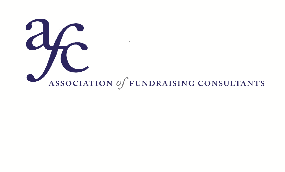Do we need a rethink on how we evaluate fundraiser performance?
Any charity that believes relationship fundraising should be left to fundraisers and that this approach will provide immediate returns on investment is going to be disappointed by a relative lack of success.
It is the job of a fundraiser to act primarily as a facilitator in the relationship between a charity and a potential donor, and it is then the job of the charity’s trustees, officers and supporting volunteers (especially people who have an existing relationship with a potential donor) to nurture these relationships.
However, a recent report by Rogare, a fundraising think tank at Plymouth University, has drawn conclusions on how fundraising practices can be improved. It suggests that charities should set aside existing systems of evaluating fundraiser performance in terms of short-term monetary gain, in favour of metrics that measure the commitment, trust and satisfaction of donors. The report’s author believes that such a policy would lead fundraisers to invest more time and resources in their work and reduce the likelihood of donors becoming irritated or distressed by excessive numbers of requests.
In my view, charities need to encourage their fundraisers to adopt a longer-term approach to the interaction of the charity with donors and potential donors. To turn a one-off exchange with a fundraiser into a relationship with the charity requires fundraisers, their colleagues and volunteers to have a shared objective of delivering a positive experience for donors and potential donors – from the start. They must all help potential donors to identify with the charity and the project for which funds are being sought. Potential donors will then decide whether and how much to give. This will be influenced by their view of the charity and the project, as well as the relationship between the potential donor and the person seeking support. Once a financial contribution has been made, and thanks / recognition completed, continuing to foster a sense of belonging to the charity’s family is an important factor in bolstering longevity in relationships and further funding.
Knowing this is one thing. Having the ability to help charity personnel understand these points is another – especially when funds are limited. Unless satisfaction-based metrics are considered, short-term targets will continue to be the motivation for fundraisers and practices will not change, causing problems to arise.
To find out more about the services we offer, please click here. If you’d like to discuss any of the issues we raise in this article, or have a no-obligation discussion about how Stefan Lipa could help your charity or not-for-profit organisation, please contact us.
12.04.2016
For more information, call us on 01264 860003 or send an email.



